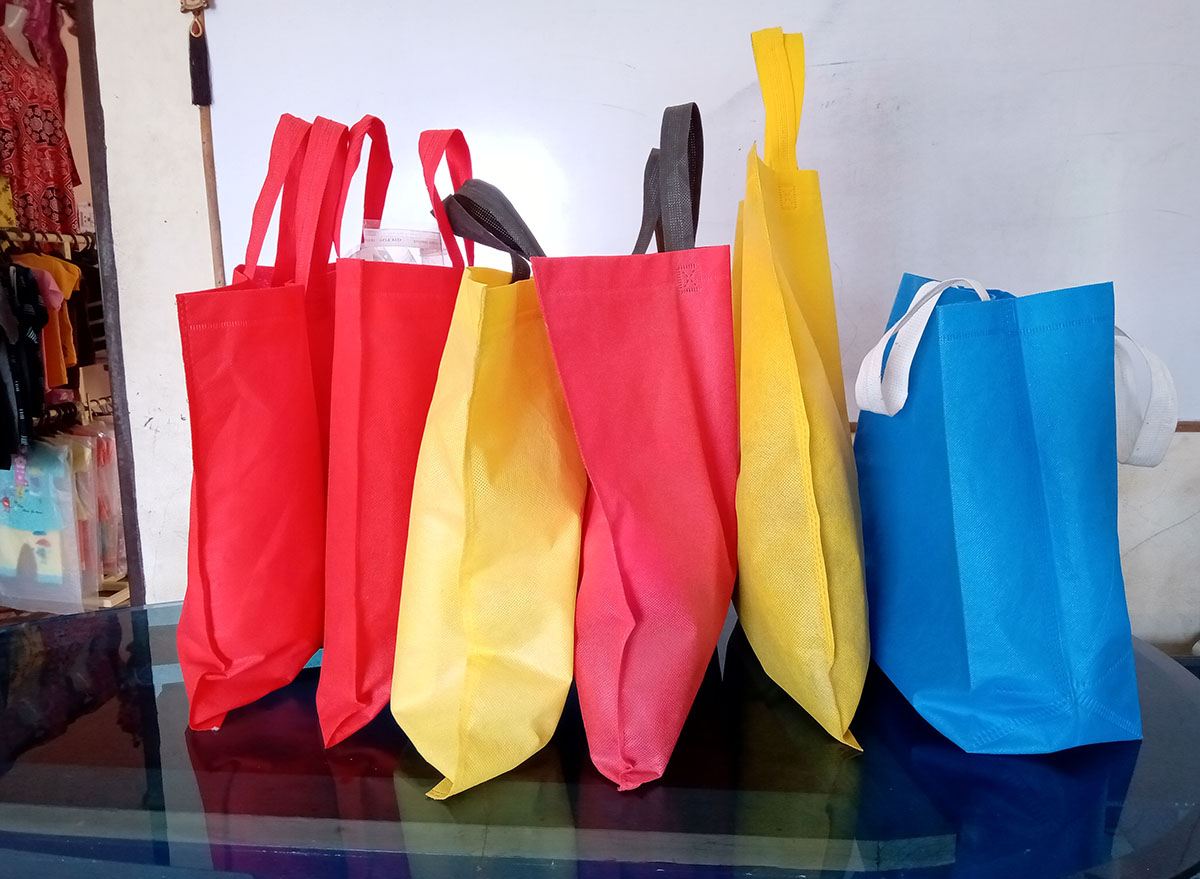Drowning In Reusable Grocery Bags? Here's What To Do With Them

You've probably heard the old saying, "The road to hell is paved with good intentions." It turns out, that proverbial roadway is now also littered—with reusable bags. Bags from Costco. Bags from Trader Joe's. Bags from every conceivable grocery store and retailer.
Cotton bags. Burlap bags. Nylon bags. Nonwoven BPA-free polypropylene bags. Plastic bags made from recycled bottles. Bags upon bags upon bags.
Reusable bags were supposed to be part of the solution, a sustainable answer to the environmental impacts caused by wasteful, single-use plastic shopping bags. And they still could be, if only people reused them enough! Trouble is, life gets in the way, as it so often does.
RELATED: America's Favorite Grocery Store Is… 7-Eleven?
You know the drill. You're out on the town, minding your business, when suddenly you remember that you're out of butter or milk, or you just need something not boring for dinner. But, silly you, you forgot to bring your own bag.
This is a major faux pas in almost a dozen U.S. states and many other countries, where old-school disposable plastic bags are either banned or otherwise restricted.
Now, when you arrive at the checkout line, you have to settle for a flimsy paper bag, or buy a new cheap reusable tote from the cashier, a similar one to the kind you probably left at home. Either way, you're part of the problem.
All of these bags can have environmental consequences, depending on what you do with them next, according to a 2020 study by the United Nations Environment Programme. Paper bags that end up in a landfill, for example, are actually worse for the climate than similarly discarded plastic bags, because of their methane emissions.
The problem with reusable bags is that you actually have to reuse them a lot in order to even have a negligible impact on Mother Earth.
A cotton bag needs to be reused between 50 to 100 times to create less harm than the traditional one-and-done plastic variety, the UN study found. Meanwhile, bags made from polypropylene—which is a form of plastic that is commonly used at grocery stores, because it is cheap, strong, and easily screen-printed with the company's logo—need between five to 20 uses, depending on the material's thickness, per the UN report.
And the bag with the least environmental impact? Oh, that's "the bag the consumer already has at home," the UN study concluded.
For eco-conscious consumers, this presents a major dilemma. Either you stay prepared and keep a few reusable bags with you at all times, or you become an unwitting collector and find some place to stash your ever-growing pile of non-reused bags.
Many of us, frankly, don't have the discipline to maintain a state of perpetual bag-readiness, so instead we're becoming bag hoarders.
In a recent CNN report on the issue, author Katie Hunt detailed her personal predicament: "I have 15 cotton totes and 12 heavy-duty plastic bags stashed in a kitchen drawer, only a few of which see the light of day."
An inventory of my own hallway closet revealed an even bigger problem for this observer—at least 30 bags of various materials—with another untold number tucked away in the trunk of my car.
So, what can be done about all these reusable bags? You can't just throw them away! That defeats the whole purpose.
There is something you else can do. And no, it doesn't involve renting a storage unit. Check with your local food pantry or soup kitchen and ask about donating your excess baggage. These charitable organizations can often make good use of any reusable bags that you don't need.
For instance, in New Jersey, home to one of the nation's strictest shopping-bag policies, several grocery stores have partnered with the state's Community FoodBank to help people find donation sites for reusable bags. There's an online map of drop-off locations here.
Fresh Direct, a New York City-based grocery delivery service, has a similar service, connecting its shoppers with drop-off locations across the city and in neighboring states as well.
Donating your unwanted bags not only helps to feed people in need, it also reduces the carbon footprint for each of those individual bags—and makes you feel like less of a hoarder at the same time.
Everyone wins!








